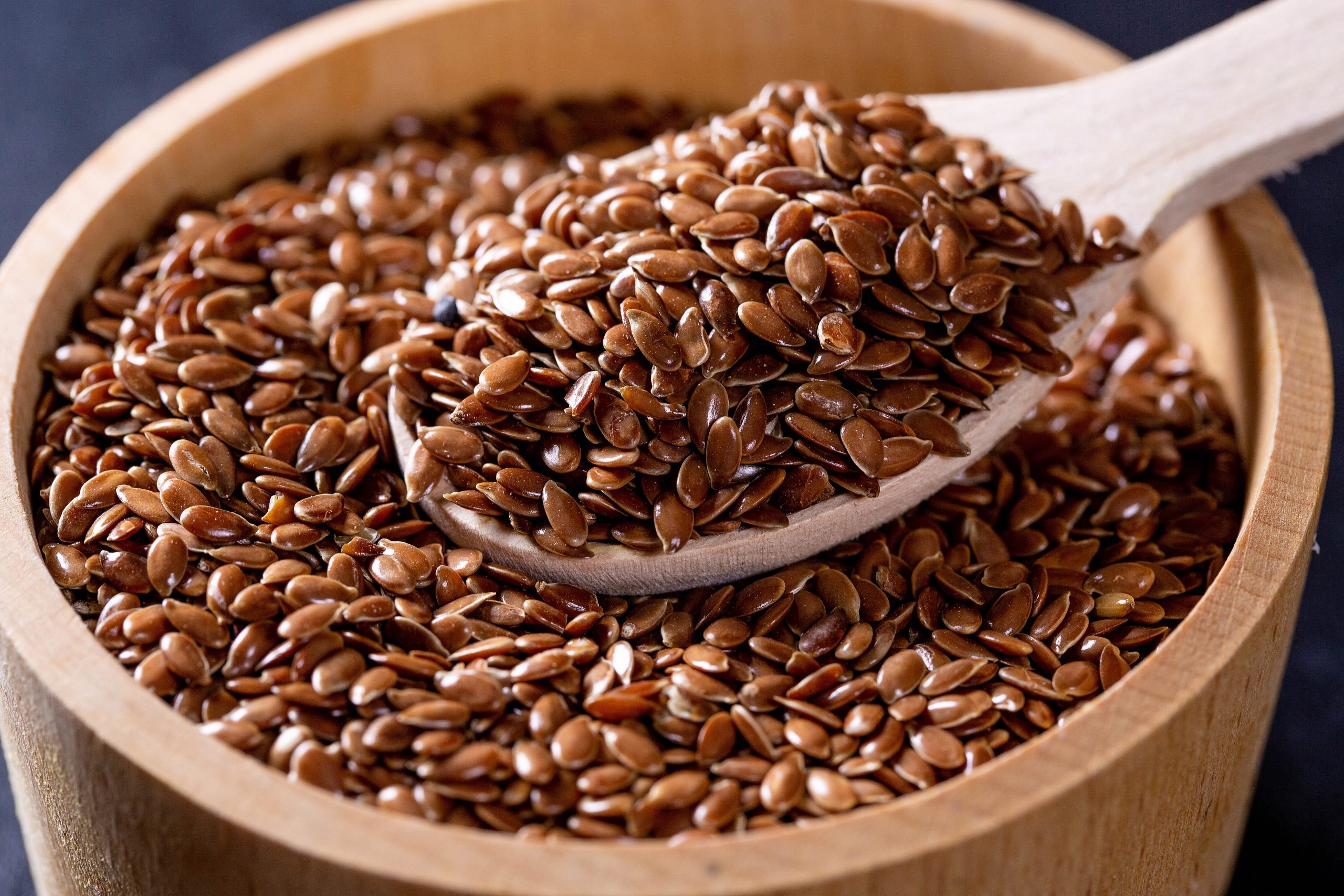
Introduction: 🌱🌟 Welcome to another enlightening blog post in our series on seeds and nuts and their impact on weight loss! In this edition, we will explore the incredible world of flaxseeds and uncover their potential benefits for your weight loss journey. Flaxseeds, also known as linseeds, have been revered for their nutritional value for centuries. Join us as we dive into the health benefits of flaxseeds and discover how they can support your quest for a healthier and fitter you!
Macros per 100g of Flaxseeds:
| Nutrient | Amount |
|---|---|
| Calories | 534 |
| Carbohydrates | 28.9g |
| Protein | 18.3g |
| Fat | 42.2g |
| Fiber | 27.3g |
| Sugars | 1.6g |
🌱🔍 Flaxseeds are a true nutritional powerhouse, offering a plethora of essential nutrients that can positively impact your weight loss journey. Let’s explore the key qualities of flaxseeds and their potential benefits:
- Fiber for Satiety and Digestive Health: 🌱🌾 Flaxseeds are exceptionally rich in dietary fiber, both soluble and insoluble. This high fiber content promotes a feeling of fullness, helps control appetite, and can contribute to weight loss efforts. Additionally, fiber supports healthy digestion, prevents constipation, and aids in maintaining a healthy gut microbiome.
- Omega-3 Fatty Acids for Heart Health and Inflammation: 🌱💪 Flaxseeds are one of the best plant-based sources of alpha-linolenic acid (ALA), a type of omega-3 fatty acid. These essential fats are known for their anti-inflammatory properties and are crucial for heart health. Including flaxseeds in your diet can provide a valuable source of omega-3 fatty acids, which may help reduce the risk of chronic diseases.
- Lignans for Hormonal Balance and Antioxidant Protection: 🌱🌈 Flaxseeds are rich in lignans, which are plant compounds with estrogenic properties. Lignans have been associated with hormonal balance, particularly in women, and may offer protection against hormone-related cancers. Additionally, lignans act as antioxidants, helping to combat oxidative stress and inflammation in the body.
- Plant-Based Protein for Muscle Support: 🌱💪 Flaxseeds provide a notable amount of plant-based protein, making them a valuable addition to a weight loss diet. Protein plays a crucial role in muscle growth and repair, helps maintain a healthy metabolic rate, and contributes to a feeling of fullness. Including flaxseeds can support your weight loss goals by providing a plant-based protein source.
⚠️ Warnings and Considerations: 🚫 While flaxseeds offer numerous health benefits, it’s important to keep the following points in mind:
- Ground Flaxseeds for Optimal Nutrient Absorption: 🚫 To maximize the nutritional benefits of flaxseeds, it’s recommended to consume them in ground form. Whole flaxseeds may pass through the digestive system undigested, reducing nutrient absorption. You can either purchase pre-ground flaxseeds or grind them at home using a coffee grinder or blender.
- Storage and Shelf Life: 🚫 Flaxseeds are sensitive to heat, light, and oxygen, which can cause them to go rancid and lose their nutritional value. It’s best to store flaxseeds in an airtight container in the refrigerator or freezer to maintain freshness and extend shelf life. Discard any flaxseeds that have a bitter or rancid odor.
- Allergies or Sensitivities: 🚫 Some individuals may have allergies or sensitivities to flaxseeds. If you have known allergies to seeds or similar ingredients, consult with a healthcare professional before incorporating flaxseeds into your diet.
- Hydration and Flaxseed Consumption: 🚫 Flaxseeds have a high fiber content, so it’s important to stay adequately hydrated when consuming them. Ensure you drink enough water throughout the day to support the digestion and absorption of flaxseeds.
💡 Recipe Ideas: Now, let’s explore some delicious and creative ways to incorporate flaxseeds into your weight loss journey:
- Flaxseed Smoothie Bowl: 🍲🌱 Blend together frozen fruits, such as berries or bananas, a handful of spinach or kale, a tablespoon of ground flaxseeds, and your choice of liquid (e.g., almond milk or coconut water). Pour the mixture into a bowl and top with additional toppings like fresh fruits, nuts, or granola. Enjoy a nutrient-packed and satisfying smoothie bowl.
- Flaxseed Crackers: 🍪🌱 In a bowl, mix ground flaxseeds, water, herbs, and spices of your choice, such as garlic powder, paprika, and sea salt. Let the mixture sit for a few minutes to thicken. Spread the mixture thinly on a baking sheet and bake in the oven at a low temperature until crisp. Break into pieces and enjoy these homemade, fiber-rich crackers.
- Flaxseed Overnight Oats: 🥣 Combine rolled oats, ground flaxseeds, your choice of milk, a dash of vanilla extract, and a natural sweetener like honey or maple syrup in a jar. Stir well, refrigerate overnight, and wake up to a ready-to-eat, nutritious breakfast. Customize with toppings such as sliced fruits, nuts, or a sprinkle of cinnamon.
- Flaxseed-Crusted Baked Chicken Tenders: 🍗 In a bowl, mix ground flaxseeds, whole wheat breadcrumbs, and a variety of spices like cumin, paprika, and black pepper. Dip chicken tenders into beaten egg or your choice of plant-based milk, then coat with the flaxseed mixture. Place on a baking sheet and bake in the oven until golden and cooked through. Enjoy crispy and protein-packed chicken tenders.
- Flaxseed Energy Balls: 🍫🌱 In a food processor, blend together dates, nuts (such as almonds or cashews), ground flaxseeds, cocoa powder, and a pinch of sea salt. Process until the mixture sticks together. Roll the mixture into bite-sized balls and refrigerate until firm. These homemade energy balls make a convenient and nutritious snack on the go.
🌟 Conclusion: 🌱✨ Flaxseeds are a nutritional powerhouse that can positively impact your weight loss journey. With their high fiber content, omega-3 fatty acids, lignans, and plant-based protein, they offer numerous health benefits and support overall well-being. Remember to consume ground flaxseeds for optimal nutrient absorption, store them properly, and be mindful of any allergies or sensitivities. Incorporate flaxseeds into your meals and snacks creatively to enjoy their nutritional goodness while working towards your weight loss goals.









